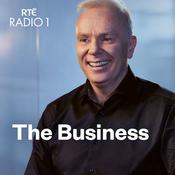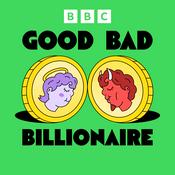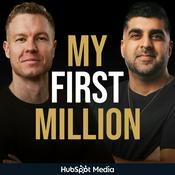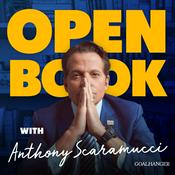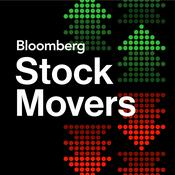28 episodes
- It’s Christmas. It’s almost the end of the year and it’s the latest episode of Fearless Diversity.
Rachel and Simon polish off the twelve days of Christmas with their final six key issues of 2025.
In place of geese, swans, maids, ladies, lords, pipers and drummers, they surprised themselves to discover nuance, ethical dilemmas, previously unthought thoughts and a continuation of their honest examinations rather than ideological assumptions.
Looking back over the issues that have touched people’s lives and lit our passions this year we explore assisted dying, academic freedom, data and privacy, impartiality and shifting media ownership and why we prefer politicians to be frank and straight-talking whatever party they come from.
Exploring our uncertainties as much as our convictions, we continue to have the conversations you want to have.
So, “Happy Christmas” to everyone who listens and we’ll see you in 2026.
UK Government Data (Use and Access) Bill 2025:
Data (Use and Access) Act 2025 - Parliamentary Bills - UK Parliament
House of Lords debate the Terminally Ill Adults (End of Life Bill):
https://parliamentlive.tv/event/index/2cbcf49e-9d0e-491d-a7e3-177077d403a0
Shabana Mahmood Speech and Question from the House of Commons on Asylum (minute 18:12 for the section referred to in Fearless Diversity)
https://parliamentlive.tv/event/index/78fe5a1e-493e-41a0-aa45-72036ba8434c?in=18:12:55
Kemi Badenoch Budget Response:
https://parliamentlive.tv/event/index/bd93fcba-e4f0-4175-b6ef-701621a2d6c2
‘I dared to question gender theory at Cambridge. Students carved Terf into my door’
https://archive.ph/mLJV3
Michelle Shipworth
UCL professor in academic freedom row speaks out on China
https://tinyurl.com/v6tj95as
Ofcom statement in response to High Court Judgment: GB News v Ofcom
https://tinyurl.com/3hsccp8a
Data Use & Access Act - Commentary by Pinsent Mason law firm
https://tinyurl.com/mryynhpn
GB News’ Martin Daubney salutes Trump’s cavalcade
https://tinyurl.com/hvn6rtwk
Saimo Chahal – Bindmans solicitor in a number of assisted dying cases –
Info on the case of Omid
https://tinyurl.com/2tucfs9e
Transcript of Evidence from Jane Nicklinson and Saimo Chahal, on Behalf of Tony Nicklinson to the Commission on Assisted Dying – Canada - dated December 14,2010
https://tinyurl.com/3ntjcepr
For more about Rachel: Who Is The Fearless Facilitator? - Fearless Facilitator
For more about Simon: Who We Are – Diversity by Design
Hosted on Acast. See acast.com/privacy for more information. - In this week’s episode, Rachel and Simon pull on their Christmas jumpers and look back at a year of fearless diversity. But instead of a partridge, turtle doves, French hens, calling birds, gold rings and geese, their first “Six Days of Christmas” are:
📌 The Employment Rights Bill
📌 The surge in ADHD, autism and wider mental health diagnoses
📌 What really happened to the so-called “diversity backlash”
📌 The national shame of violence against women – and what it means for workplaces
📌 Significant employment tribunals and the defence of lawful belief
📌 The aftermath of the Supreme Court judgment in For Women Scotland
Threaded through all six are a hard, practical set of questions:
Is there a widening gap between ambitious language (on rights, inclusion, safety, mental health) and the real machinery of guidance, training and governance needed to deliver?
Does our capacity, competence and confidence in people management lag what these pressures demand?
Are law and policy being asked to settle deep social disagreements, leaving institutions exposed, anxious and unsure how to act without legal or reputational blowback?
Are people simply tired of performative gestures and hungry for visible fairness, safety, and competence instead?
Amid culture-war noise and contested change, is there finally an appetite for more grown-up, practical responses in workplaces and in public life?
Join Simon and Rachel for this week’s Christmas special, and feel free to comment, share, disagree and enjoy.
RESOURCES:
Sir Charlie Mayfield interviewed by Anna Foster on Radio 4’s Today Program (05/12/2025)
https://tinyurl.com/3k6e2dht
Charlie Mayfield Review Keep Britain Working Review: Discovery - GOV.UK
Sarah Everard’s mother’s statement on her daughter’s murder
https://tinyurl.com/5amt8kux
Lady Elish Angiolini (former solicitor general for Scotland) on the release of The Angiolini Inquiry Part 2 First Report: Prevention of sexually motivated crimes against women in public
https://tinyurl.com/3u9yp656
Higgs v Farmor’s School – Appeal Court judgement
https://tinyurl.com/29sd8ayy
Miller v University of Bristol
The original judgement
https://tinyurl.com/49exnbjv
This is being appealed – the hearing was on 12-14th November 2025. Judgement not yet handed down
People Management
“UK companies abandon EDI initiatives in response to Trump’s anti-diversity rhetoric, survey finds” – Nov 3rd 2025
https://tinyurl.com/3psxsmvu
Minister, Baroness Smith - Clarity on Supreme Court Judgement, November 2025
https://hansard.parliament.uk/Lords/2025-11-05/debates/33DF0162-75ED-447D-9384-EE32A6422193/details#contribution-1457B511-21E8-40D1-9391-FEE39EF8751E
The Prime Minister “the Supreme Court Judgement must be implemented in full and at all levels”, November 2025
https://hansard.parliament.uk/Commons/2025-11-12/debates/92F8A914-4D55-4672-A617-A8D393E3504F/details#contribution-38146318-67B4-4A4B-8836-5DE3503797FA
Supreme Court judgement in April
For Women Scotland Ltd (Appellant) v The Scottish Ministers (Respondent)
For more about Rachel: Who Is The Fearless Facilitator? - Fearless Facilitator
For more about Simon: Who We Are – Diversity by Design
Hosted on Acast. See acast.com/privacy for more information. - Tearing Down the Wall: A Fearless Diversity Look at Fairness
Three kids, a wall, and those famous different-sized “equity” boxes. Helpful metaphor or the reason that to so many leaders and colleagues think the boxes look like unfairness?
In this episode of Fearless Diversity, Rachel and Simon start with that much-used cartoon and end up somewhere much more interesting: how do we remove the barriers to people’s talent and empower them to achieve to the extent of their potential?
Are those “equity” boxes giving people the perception of an unfair advantage? To create greater opportunity shouldn’t we be taking the wall down altogether? And what does that look like if you’re a CEO, HRD, regulator or team leader trying to recruit, promote and manage fairly without getting lost in culture-war noise?
Rachel brings her psychological-safety and trauma-informed leadership lens; Simon brings his unique approach to diversity rooted in goals and outcomes rather than gestures and politics. Together they unpack quotas, merit, the “tyranny of low expectations”, neurodiversity, and why pointing and punishing rarely changes anything.
We ask how we can (to quote the great black American profess Glen Loury “acknowledge racial disparities without invoking the language of white supremacy. And … pursue equality without promoting guilt or resentment”?
If you’ve ever wondered:
When does equity become unlawful?
How do we support people who meet the skills threshold to succeed?
How do we challenge racism and sexism without turning everything into oppressor vs oppressed?
…this one’s for you. Smart, practical, occasionally spicy and definitely more useful than another slogan on a slide.
How woke and anti-woke erase blackness We must see race, but not be ruled by it
By Glenn Loury
https://shorturl.at/78pWr
For more about Rachel: Who Is The Fearless Facilitator? - Fearless Facilitator
For more about Simon: Who We Are – Diversity by Design
Hosted on Acast. See acast.com/privacy for more information. - In this special Fearless Diversity episode, we press pause on the culture war and lean into a quieter kind of courage: listening.
Rachel and Simon are joined by Jacqui Gavin BEM, a trans woman, former civil servant and long-time equality campaigner, for a deeply human conversation about growing up as Scott in 1970s Scotland, beginning transition as a teenager, and what it means to describe being trans not as an identity but as a process.
Across the hour, they explore:
The nine-year-old who “wanted to find the girl” and the 21-year-old stepping out with fear and liberation to live as a female.
Why Jacqui calls herself “female with a trans history” and how she still lovingly carries Scott with her.
What both sides of the sex and gender debate get wrong about each other, and why Jacqui sees herself not as a fighter but as a bridge-builder.
Letting children be children, respecting women’s boundaries, and learning to “earn your place in the world” through mutual respect, not demands.
This is not a shouting match about policy. It’s three people, in a conversation, talking honestly about fear, dignity, belonging and how to stay human when the world is loud, angry, and certain.
If you’ve ever felt confused, anxious, or silenced by the noise around sex and gender, this gentle, thoughtful episode is an invitation: you’re allowed to just ask.
For more about Rachel: Who Is The Fearless Facilitator? - Fearless Facilitator
For more about Simon: Who We Are – Diversity by Design
Hosted on Acast. See acast.com/privacy for more information. - “A crisis of trust at the BBC”
The BBC is weathering one of the fiercest storms in its modern history. The now-infamous Prescott memo, an “egregious” Trump edit, open rows over coverage of the Israel-Gaza conflict, and bitter battles about sex and gender have left Britain’s national broadcaster facing accusations of bias from every direction.
But is this just another skirmish in the Beeb’s long and noisy war with its critics – or has something deeper gone wrong inside the corporation once trusted above all others?
That’s the question explored in the latest episode of Fearless Diversity, where psychological safety specialist Rachel Cashman joins broadcaster, writer and veteran BBC contributor Simon Fanshawe to ask what the turmoil really reveals about power, leadership and culture inside Britain’s biggest media institution.
Drawing on Simon’s decades writing and presenting BBC programmes and Rachel’s work with leaders under intense scrutiny, the pair dissect the growing crisis from every angle.
They explore:
· What the leaked Prescott memo uncovers – from the Trump editing debacle to the shifting coverage of Gaza, Israel, and the gender debate.
· How cost-cutting, centralised editorial “hubs” and tight internal controls may have narrowed the breadth of voices and opinions on air.
· Why two things can co-exist: that many have had fulfilling, proud careers inside the BBC while serious questions about its impartiality and internal culture remain unanswered.
· The chilling effect of reported instructions not to question the board – and why any “don’t ask” culture is a red flag in modern leadership.
· How institutions truly lose trust: not when they admit mistakes, but when they spin, minimise or defend instead of confronting uncomfortable truths.
Rachel unveils her FEARLESS crisis framework – a model for organisations in trouble – and applies it directly to the BBC, suggesting bold steps the broadcaster must take to rebuild its credibility.
Simon, meanwhile, delivers the uncomfortable verdict: that the deeper failure is one of journalism itself. The Director-General, he argues, must act first and foremost as editor-in-chief – and ensure editors lead with impartiality, serving the audience, not their own opinions.
Together they make the case for renewing the BBC’s founding purpose: that public service broadcasting still matters, that opinions should never become the story, and that courage and transparency are the lifeblood of any institution hoping to retain public trust.
For anyone steering organisations through controversy, managing reputational risk, or simply trying to make sense of what’s happened to the nation’s broadcaster, this is an unmissable listen.
For more about Rachel: Who Is The Fearless Facilitator? - Fearless Facilitator
For more about Simon: Who We Are – Diversity by Design
Hosted on Acast. See acast.com/privacy for more information.
More Business podcasts
Trending Business podcasts
About Fearless Diversity
Leaders are faced with dilemmas every day that flow from human interactions at work. And they are so often disruptive, time-consuming, potentially create division among your staff and test you as a leader. You need time to reflect…..you need space in the morning to listen to Rachel Cashman and Simon Fanshawe eating these problems for breakfast. Fearless Diversity is the candid podcast that tackles the real dilemmas bosses, managers, and leaders face every day – around accountability, decision-making, workplace dynamics, conflict, and organisational culture and their people. Join Rachel Cashman and Simon Fanshawe — two of the foremost thought leaders in workplace diversity, leadership, and inclusion — as they dive into honest conversations that get to the heart of it. We have the conversations you want to have. Rachel brings real-world, high-level implementation experience - expertise that CEOs and managers can trust, learn from, and enlist when they need results and to ensure their teams perform at their best. Simon adds his clout as a highly respected broadcaster, author, and inclusion specialist. They don’t always agree — and that’s the point. Rachel and Simon argue, disagree, and explore different perspectives, and always with resolution and insight – modelling the difficult conversations leaders need to have. It’s a podcast for thoughtful leaders who want to reflect, rather than shout or be shouted at. Fearless Diversity is the place to think differently about today’s trickiest human issues at work. Hosted on Acast. See acast.com/privacy for more information.
Podcast websiteListen to Fearless Diversity, The Diary Of A CEO with Steven Bartlett and many other podcasts from around the world with the radio.net app

Get the free radio.net app
- Stations and podcasts to bookmark
- Stream via Wi-Fi or Bluetooth
- Supports Carplay & Android Auto
- Many other app features
Get the free radio.net app
- Stations and podcasts to bookmark
- Stream via Wi-Fi or Bluetooth
- Supports Carplay & Android Auto
- Many other app features


Fearless Diversity
Scan code,
download the app,
start listening.
download the app,
start listening.






